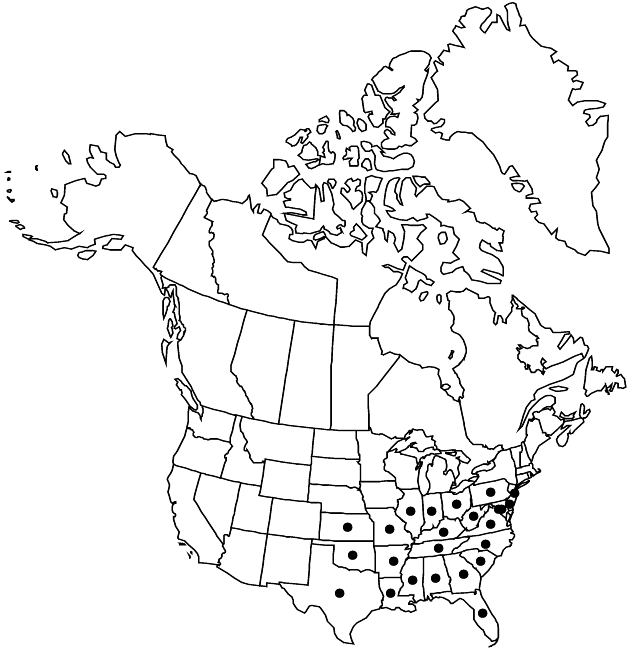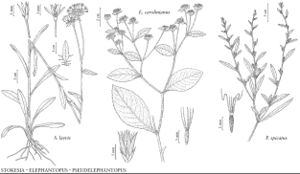Elephantopus carolinianus
Nomencl. Bot. ed. 3, 256. 1797.
Treatment appears in FNA Volume 19. Treatment on page 203.
Revision as of 00:13, 27 July 2019 by FNA>Volume Importer
Plants (1–)3–8(–12+) dm. Leaves mostly cauline at flowering; blades broadly elliptic or ovate to lanceolate, 6–12(–18+) cm × 30–80(–120+) mm (including petioles), both faces sparsely pilose to hirsute. Bracts rounded-deltate to lance-deltate, (5–)10–15(–25+) × (4–)6–12+ mm. Inner phyllaries 8–10 mm, sparsely hispidulous to pilosulous, hairs 0.1–0.3 mm. Cypselae 2.5–4 mm; pappi 4–5 mm. 2n = 22.
Phenology: Flowering Aug–Sep(–Oct).
Habitat: Open or shaded, damp to wet places in pine forests and mixed forests, often on sandy soils
Elevation: 10–700 m
Distribution

Ala., Ark., Del., D.C., Fla., Ga., Ill., Ind., Kans., Ky., La., Md., Miss., Mo., N.J., N.C., Ohio, Okla., Pa., S.C., Tenn., Tex., Va., W.Va.
Discussion
Selected References
None.
Lower Taxa
None.
